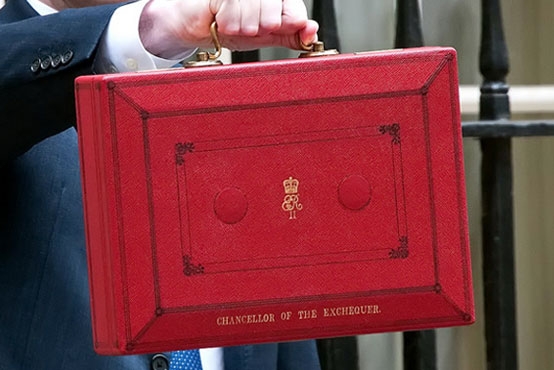
Saving and investing after the 2017 Budget
10th March 2017
What do the Chancellor’s Budget announcements mean for you?
The 2017 Budget is now complete, and along with some of the predicted announcements the Chancellor of the Exchequer, Phillip Hammond, also made a couple of unexpected changes. Here we take a look at what the Budget 2017 has brought, and what it might mean for you.
Was it all ‘steady-as-she-goes’ for savers and investors?
One of the key announcement made in the 2017 Budget was also probably one of the least expected – the reduction of the tax-free dividend allowance from £5k to £2k.
This is a further reduction since previous changes came into force on 6th April 2016, before which a 10% tax free allowance on dividends had been in place.
Once these new changes are in place investors earning more than £2k per year from dividends, will be taxed on this income according to their income tax rate.
In particular it is anticipated that this will affect small business owners who often rely on dividends as a source of income.
In his speech Mr Hammond said this move, along with other changes to National Insurance Contributions by self-employed workers, should help to “reduce the tax differential between the self-employed and employed, and those working through a company.”
Read City AMs more in-depth coverage of this change here http://www.cityam.com/260522/tax-free-dividend-allowance-reduced-5000-2000
No changes to tax free saving in ISAs
ISA investors/savers can breathe a sigh of relief because there were no announced changes to any of the existing licensed ISAs.
And in fact, from 6th April 2017 because of changes announced in the previous Budget, everyone’s personal annual ISA allowance will increase from £15,240 to £20,000.
So because of the changes to dividend allowances, ISAs, including Crowdstacker’s own Innovative Finance ISA (IFISA), are possibly looking more attractive than ever to people looking for a better deal.
Crowdstacker remains one of the few platforms licensed by HMRC to offer an IFISA, and its IFISA is one of the oldest on the market. By the close of this financial year it will have paid out over £250k in interest to IFISA investors who are benefitting from returns of around 4-6% on average depending on which loans they choose to include in it.
Other tax changes also announced
The most significant other tax change for individuals is the increase in national insurance contributions that self-employed workers will need to make.
These are currently lower than those paid by employees, but Phillip Hammond’s 2017 Budget is looking to raise an extra £145m per year by increasing NICs from 9% to 11% by 2019.
Whilst the Government says this money is needed to plug urgent funding gaps in services such as social care and the NHS, groups representing some of the 4 million self-employed people in the UK have reacted with dismay. Read more about this in the Daily Telegraphs article http://www.telegraph.co.uk/news/2017/03/08/budget-2017-millions-self-employed-hit-2-per-cent-rise-national/
A helping hand for business?
On the flip side the latest Budget does seem to be trying to offer some support to businesses which will be affected by the business rate rises due to come into force in April this year.
The Government has argued that the rate increase will only impact about a quarter of UK business. And according to one report in the Guardian (Budget 2017: retailers in plea to soften impact of business rates hike, 6/3/17) will mean increases only for businesses in London and Reading, whilst elsewhere in England and Wales costs will actually fall.
However, groups representing British businesses such as the CBI and British Retail Consortium have been exerting pressure on the Government to use the Budget 2017 as a means to lighten the load. They claim commercial rates could double for some businesses, so the Budget needs to find ways of off-setting this to ensure the UKs businesses can continue to flourish.
And it seems Phillip Hammond has responded to some of these cries for help in his 2017 Budget by pledging that no business will see its individual rates rise by more than £50 next year. And additionally it has put aside £300m for councils to use on a discretionary basis to relieve the business rates burden for local businesses. Read more about this in the Telegraph http://www.telegraph.co.uk/news/2017/03/08/philip-hammond-unveils-435m-relief-package-soften-businessrates/
The Budget 2017 - What does it all mean?
There were other announcements made in the Budget speech including funding to help people return to work and new education initiatives to support STEM subjects and technical qualifications.
The main thrust appears to show a Government intent on reducing national debt by increasing the tax burden on some, and also seeking to find cash to pay for public services such as hospital emergency care, as well as care for the elderly.
Whilst the changes might not seem immediately significant for savers and investors, many of us will still be affected by these changes. So, as always, a quick financial health check will certainly be a useful exercise to go through to make sure you’re maximizing opportunities and reducing costs.
For ideas about how to do this check out our eBook ‘Your Essential Guide to Finance’ for information on how changes introduced in the current tax year might be affecting you. And look out for a new edition launching at the start of the new 2017-18 financial year which will include information on all the changes announced in the 2017 Spring Budget.
